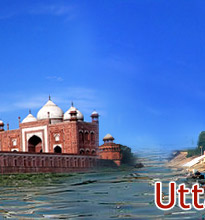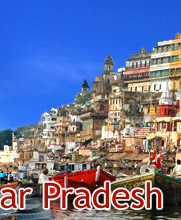Chikankari is synonymous to Lucknow. Chikankari is to
Lucknow what Coal is to Liverpool. A substantial part of the population
in the old Lucknow area earns their livelihood engaging in some or other
activity of related to Chikankari. Chikankari is actually a very complex
and delicate form of embroidery that primarily uses muslin clothes. This
kind of embroidery is only confined to the city of Lucknow. The term
'Chikankari' has originated from the Persian word Chikan that means
muslin wrought with needlework. Nevertheless, this art has nothing to do
with Persia. It developed in the courts of Nawabs and Masabdars. As
Persian was the court language then, the art borrowed its name from
that.
The Chikankari started in the courts of Awadh Nawabs and was patronized
by them for many years. The Nawabs were the setter of fashion in those
eras. The art remained confined to Nawabs and nobles for a long time but
with the advent of British, the scenario changed. Due to the fall of
Nawab system, the artisans started searching for newer avenues and then
this art came to the masses.
Chikan has very light, gossamer like quality that makes it fit for the
extreme climate that the considerable parts of North India face. In
fact, light Chikan Sarees and white Chikan Kurtas are considered to be
the best wear for women and men respectively in summers.
The design motifs in Chikankari are predominantly influenced by Mughal
art. These motifs are similar to the one seen in Taj Mahal and Agra
Fort. Another important constituent of this art form is stitch. There
are various stitches used in Chikankari. They vary according to the kind
of designs and materials used. The most frequently used stitch is the
satin stitch. Apart from that there are others like stem stitch and
chain stitch etc.

    |





